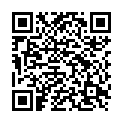|
|
|
| Module code: MAS-20-III3 |
|
|
2S (2 hours per week) |
|
5 |
| Semester: 2 |
| Mandatory course: yes |
Language of instruction:
German |
Assessment:
Written exam
[updated 14.06.2021]
|
MAS-20-III3 (P322-0191, P322-0577) Social Work, Master, ASPO 01.10.2020
, semester 2, mandatory course
MAS-20-III3 (P322-0191, P322-0577) Social Work, Master, SO 01.10.2023
, semester 2, mandatory course
|
30 class hours (= 22.5 clock hours) over a 15-week period.
The total student study time is 150 hours (equivalent to 5 ECTS credits).
There are therefore 127.5 hours available for class preparation and follow-up work and exam preparation.
|
Recommended prerequisites (modules):
MAS-20-I1 Transitions in the Course of Life: Lives, Biographies, and Coping with Life in the Face of Social Change
MAS-20-I2 Life Situations, Social Inequalities and Social Cohesion: Social and Educational Regulation
MAS-20-I3 Migration, Diversity and Interculturality: Socio-Educational and Structural Concepts in Migration Society
[updated 30.10.2023]
|
Recommended as prerequisite for:
MAS-20-V1 Master’s Thesis
MAS-20-V3 Colloquium
[updated 22.05.2025]
|
Module coordinator:
Prof. Dr. Kerstin Rock |
Lecturer: Prof. Dr. Kerstin Rock
[updated 30.10.2023]
|
Learning outcomes:
After successfully completing this module, students will be able to:
- map organizational theories and take a position on organizational change and human resource and organizational development,
- model theories of individual, social, and organizational learning with particular attention to the importance of symbols, shapes and diagrams in the learning process,
- weigh the interrelationship of learning and counseling processes at individual, team, and organizational levels,
- rethink the forms and meaning of knowledge and knowledge production in modern organizations,
- derive theories and methods of vocational education and training research.
[updated 14.06.2021]
|
Module content:
- In-depth study of selected theoretical dimensions of the welfare state and welfare production, such as: Subsidiarity, corporatism, social citizenship, institutionalist and neo-institutionalist theories of the welfare state, governmentality theory, systems theory and conflict theory explanations on how welfare is produced.
Organizational theories and theories of organizational and human resource development
- Theories of individual, social and organizational learning (theories of vocational-operational learning) and how they are linked
- Educational and counseling processes in the context of personnel and organizational development
- Learning and continuing education in the professional and working world
- Learning in and from companies and in organizations of the welfare state
- Counseling and support in corporate and welfare state organizations
- Theories on knowledge and representation and their significance for learning processes and retaining what was learned
- Organization-related knowledge and media theories
- Evaluation of further training, personnel and organizational development measures
[updated 14.06.2021]
|
Teaching methods/Media:
In addition to seminar-based forms of conveying and appropriating the content of this module, such as the reception and reflection of relevant literature during preparation for and follow-up (self-study) of the module, presentations and student group work, empirical-analytical work on models, introduced in collaboration with professional practice, will, among other things, contribute to the teaching-learning process. This will be supplemented by individual teaching units with a workshop-like character. These teaching units can also take place as a block for didactic purposes.
[updated 14.06.2021]
|
Recommended or required reading:
The relevent literature will be updated regularly and communicated via the seminar schedule and presentations.
[updated 14.06.2021]
|


